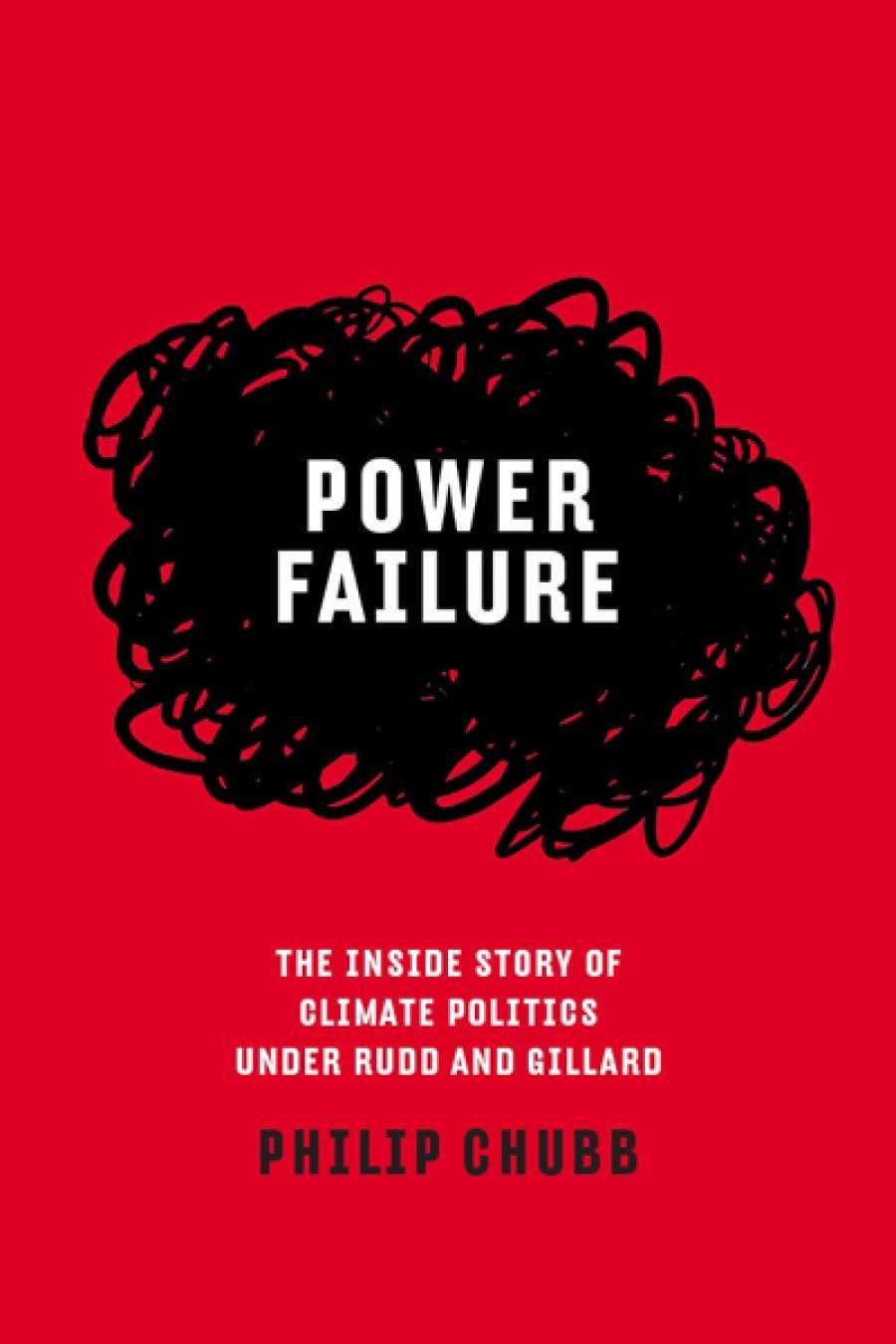
- Free Article: No
- Contents Category: Politics
- Review Article: Yes
- Article Title: Climatic cock-up
- Online Only: No
- Custom Highlight Text:
Speaking about the process of painstakingly researching the ‘terrible mistakes’ made on climate policy by the Rudd and Gillard governments over the six years of their existence, Philip Chubb told an audience at the Wheeler Centre that he ‘almost exhausted [himself] with gloom’. Indeed, this important book, which covers the Icarian trajectory of climate policy through Labor’s years in power, is hardly cheerful. Rather, Chubb hopes that the documentation and analysis of the many poor decisions will help legislators to overcome the challenges of implementing significant but controversial reforms in the future.
- Book 1 Title: Power Failure
- Book 1 Subtitle: The inside story of climate politics under Rudd and Gillard
- Book 1 Biblio: Black Inc., $29.99 pb, 319 pp
Chubb pulls back the curtain on how the respective prime ministers’ managerial styles affected policy outcomes, arguing that Rudd’s ‘command and control’ habits created instability and led to the squandering of the early consensus for climate action. Chubb is particularly critical of Rudd’s poor strategic planning with regard to the Carbon Pollution Reduction Scheme (CPRS), accusing him of simultaneously relying on the Coalition to pass the bill and doing his utmost to humiliate the moderate Malcolm Turnbull. Ultimately, this approach led to the replacement of Turnbull with Abbott, destroying bipartisan support and leaving Rudd without a backup plan.
 Kevin Rudd and Julia Gillard (photograph by Stephen Cooper, courtesy of Newspix)
Kevin Rudd and Julia Gillard (photograph by Stephen Cooper, courtesy of Newspix)
Rudd is the primary recipient of blame in this book, though Chubb argues most of the politicians are responsible to some degree. After the 2009 Copenhagen UN Climate Change Conference ended in disarray, Rudd clearly went through some kind of crisis and lost interest in climate reform. He would reportedly freeze in meetings, unable to contribute or make decisions. His notoriety for requesting papers from public servants came not from a titanic capacity for productivity, but as a result of a stalling tactic.
Chubb argues that the first Rudd government (2007–10) was swept up in its own early success, missing the warning signs that climate change would become an extremely divisive matter. ‘Climate change,’ wrote Tasmanian social scientist Bruce Tranter, ‘provokes such visceral arguments because it allows ancient battles – about personal responsibility, state intervention, the regulation of industry, the distribution of resources and wealth, or the role of technologies in society – to be fought all over again.’ It was hubris that prevented the government realising that this issue was ripe for conservative manipulation – until it was too late.
One of the most startling aspects of this book is revisiting 2007, an almost mythic time when the Ruddite momentum for climate action appeared unstoppable and the blood oath to repeal the carbon tax was but a twinkle in Tony Abbott’s eye. It is disquieting to remember that there was once a time when the public were broadly behind the need to act on climate change, and there was bipartisan support for legislative change. Chubb describes the 2007 election as the world’s first poll on climate change, helping Rudd to ride the climate wave to victory. The contrast is astounding when we consider that only four years later climate-change politics had become so toxic that the Gillard government would eventually decide that even defending its own carbon policy was too risky, opting instead for studied silence on the issue. Although Gillard’s consensus-building proved effective at creating a workable deal with the Greens and independent cross-bench MPs, the politics of climate change had already gone belly-up.
One of the key lessons Chubb lands upon is that both governments failed to communicate their policies effectively. The hostility of many in the Latrobe Valley towards the government is illustrative of this failure; neither government did much to reassure power plant workers and other community members that they would not wake up one day to see their livelihoods pulled out from underneath them. For Gillard, the decision to remain silent publicly and to focus on policy development while negotiations with the crossbenchers proceeded meant that climate sceptics were allowed to dominate the public discussion.
Chubb’s treatment of the ‘there will be no carbon tax under a government I lead’ issue – the question of whether Gillard was dishonest – is insightful. There was neither dishonesty nor back-flipping on Gillard’s part, but rather a combination of poor communication and a dogged, highly negative opposition. This reiterates how exceedingly difficult it is to explain complicated policy detail to an already sceptical public in the face of an opposition that sees all competition as zero-sum. The book also provides an examination of Rudd and Gillard’s respective climate policies with a level of nuance and clarity unattainable in news media.
Power Failure is a rewarding read for anyone interested in the politics and policy of climate change, as well as those wanting general insight into the horse-trading and compromise of practical governance. One hopes this revealing book will one day assist legislators to reach a durable solution to the wicked problem of climate change, gloom notwithstanding.


Comments powered by CComment